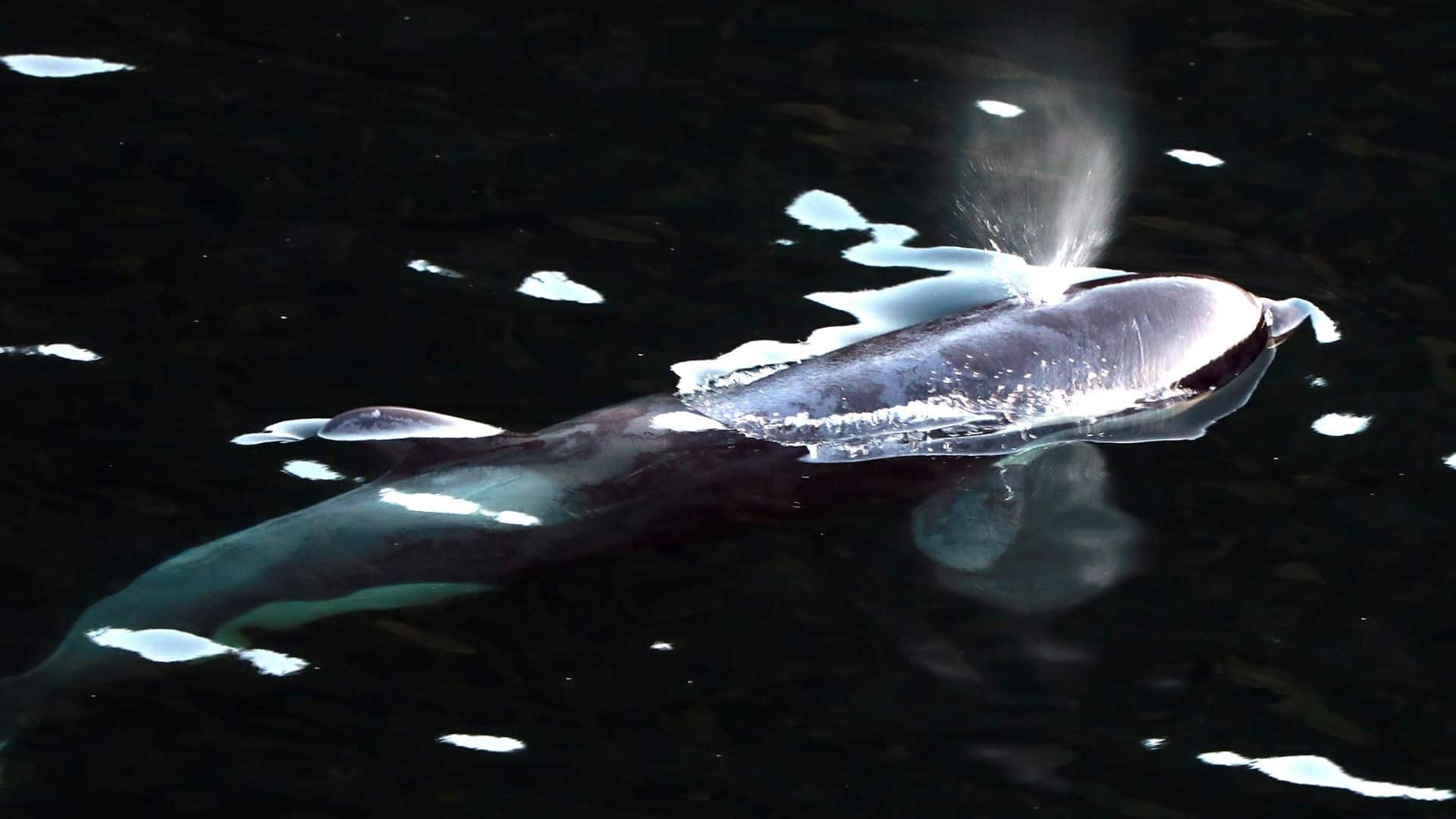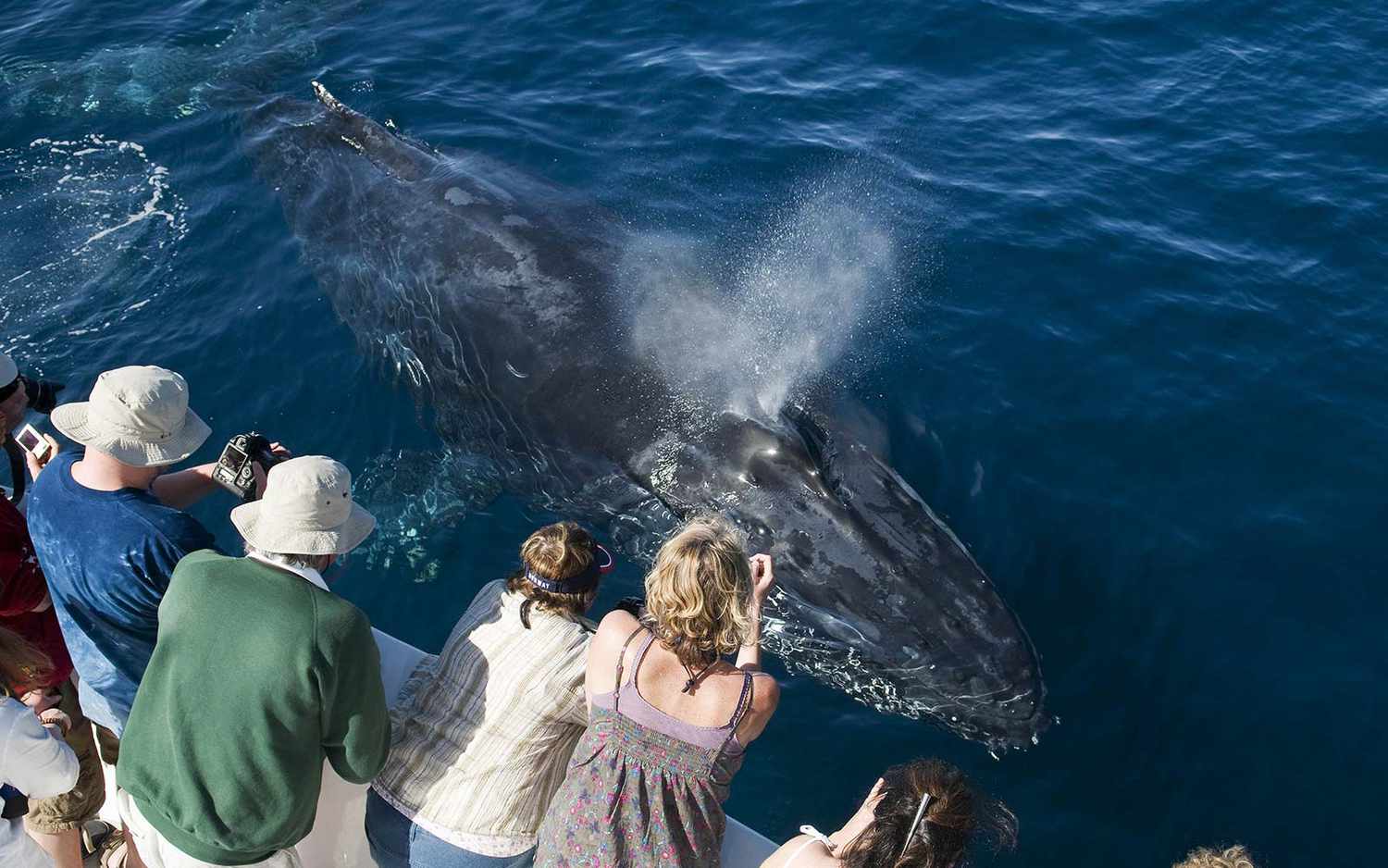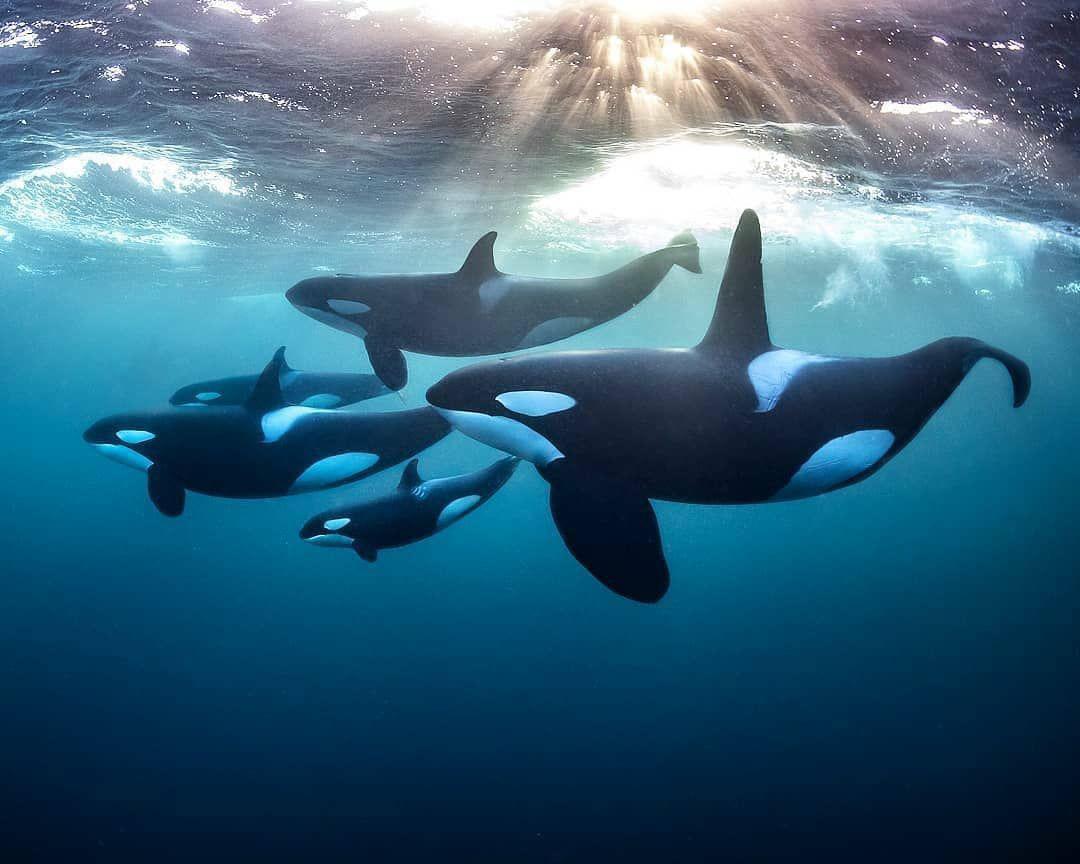
Scientists Are Hoping AI Technology Can Reunite an Orphaned Orca Calf With Her Family
In the stunningly pretty part of the world near the Vancouver Island town of Zeballos, a heartwarming story of an orphaned orca calf, named Brave Little Hunter, has captured the hearts of many. The calf’s mother, a pregnant orca, had entered a lagoon off Little Espinosa Inlet in British Columbia, Canada, with her two-and-a-half-year-old calf. Tragically, the mother became stranded and died nearby, leaving the calf alone and vulnerable.
The community came together to try and help the stuck whale calf, with various attempts made to rescue her, from using a giant net to singing songs. However, Brave Little Hunter managed to evade all attempts to help her escape from the lagoon. For nearly a month, she swam back and forth, likely aware that her mother wasn’t there to help, but unsure of the humans trying to assist her.
 Brave Little Hunter swims alone in the lagoon
Brave Little Hunter swims alone in the lagoon
Finally, at about 2:30 a.m. on the morning of April 26, Brave Little Hunter found her way to freedom all by herself. The team later found her in Espinosa Inlet and followed her from a distance as she moved toward Esperanza Inlet proper.
Although her chances of survival are relatively good, they are far better if she’s able to reunite with her pod. At the time of this writing, Brave Little Hunter is being tracked by officials to ensure that she doesn’t come into contact with boats or other humans. The public has been asked to stay away from the area.
A British Columbia-based research group called Bay Cetology is behind the novel idea of using AI technology to help reunite Brave Little Hunter with her family. They’ve offered access to their online AI-assisted photo database to local photographers and whale watching tour operators in an attempt to locate Brave Little Hunter’s pod.
“Really, this is just an extension of that research methodology,” said Executive Director Jared Towers. “It started with film, and then it went digital, and now we’re transitioning into deep learning, machine learning, or an artificial intelligence kind of model to conduct this work moving forward.”
The AI program, called Finwave, is still in beta-tests, but according to the CBC, it has an accuracy rate of over 90 percent when identifying images of whales. Hopes are high that Brave Little Hunter will find her pod on her own, but any little bit of help is welcomed.
 Whale watching tour operators are helping to locate Brave Little Hunter’s pod
Whale watching tour operators are helping to locate Brave Little Hunter’s pod
In early April, Brave Little Hunter’s pod was spotted off Ucluelet, BC, about 90 miles south of Zeballos. Fingers are crossed that she can make it back to her pod and continues to live a long and healthy life.
 A pod of orcas swimming together
A pod of orcas swimming together
As I reflect on this incredible story, I’m reminded of the importance of community and innovation coming together to make a difference. Brave Little Hunter’s journey is a testament to the power of compassion and determination. Let’s hope that with the help of AI technology, she’ll soon be reunited with her family, swimming freely in the open ocean.















